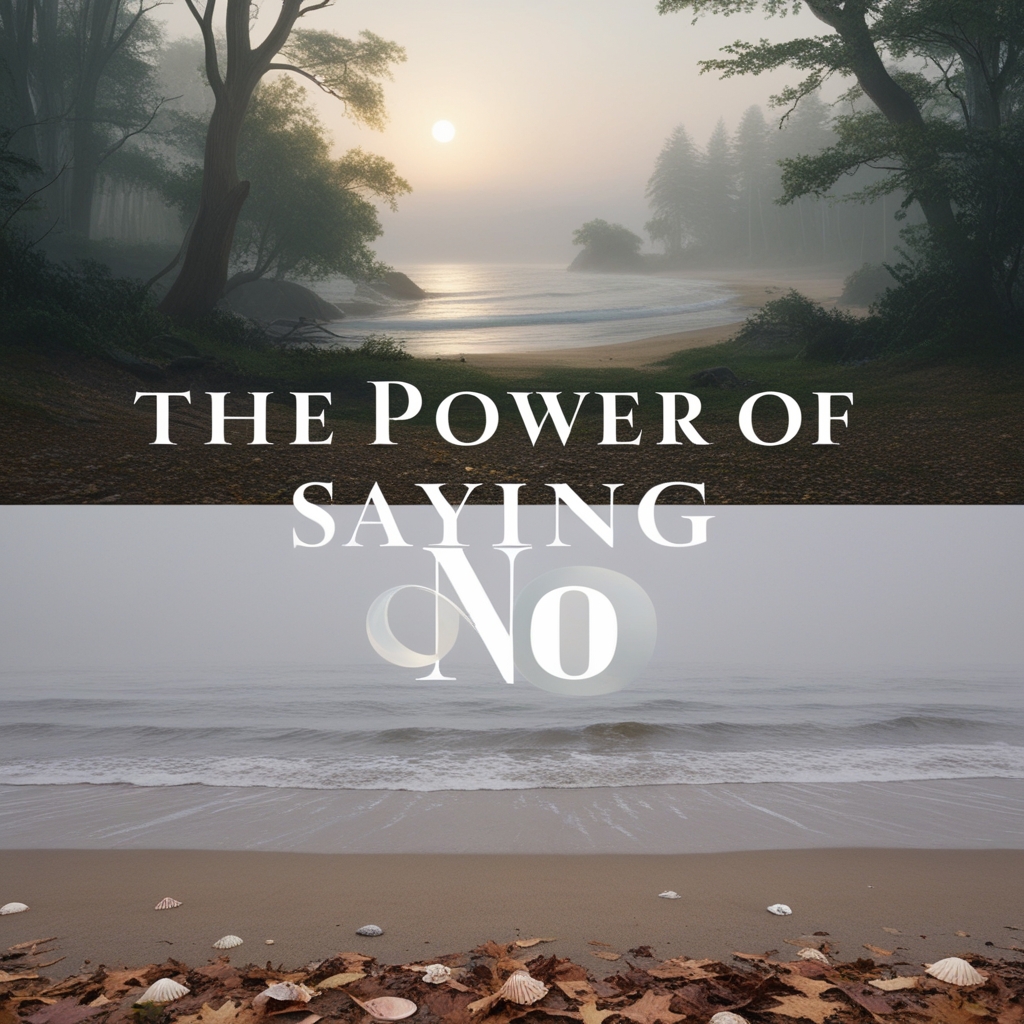In a world that constantly demands our time, attention, and energy, one of the hardest things to do is say “no.” Whether it’s a request from a friend, a last-minute project at work, or a social event you’re not interested in, the pressure to say “yes” can feel overwhelming. Yet, constantly agreeing to things that don’t align with your goals, values, or well-being can lead to burnout, stress, and frustration.
The power of saying no is more than just a refusal—it’s a way of setting boundaries that can lead to a more balanced, fulfilling, and happier life. By reclaiming control over your time and energy, you allow yourself to focus on what truly matters.
Why Saying No Feels So Difficult
For many, the idea of saying no brings up feelings of guilt, fear, or anxiety. You might worry about disappointing someone, being seen as selfish, or damaging relationships. These emotions are often rooted in societal expectations, where agreeing to every request is seen as being helpful, kind, or easygoing.
The fear of conflict or rejection can also make saying no particularly challenging. We are often taught from a young age that being agreeable and accommodating is the path to being liked. However, the reality is that this constant “yes” can lead to a life that’s out of alignment with your true desires.
In fact, the inability to say no can even hinder personal growth. When you prioritize the needs of others over your own, you limit your opportunities for self-development and neglect the things that bring you joy. It’s important to understand that saying no doesn’t make you a bad person—it simply means you’re prioritizing what’s important for you.

The Importance of Setting Boundaries
Saying no is a critical part of setting personal boundaries, which are the limits we create to protect our emotional, mental, and physical well-being. Healthy boundaries allow us to maintain our self-respect, protect our energy, and build stronger relationships based on mutual respect.
When you consistently say yes to things that drain you, you’re effectively putting other people's needs before your own. Over time, this can lead to stress, burnout, and feelings of being overwhelmed. By learning to say no, you can prioritize your well-being and focus on the things that truly matter to you.
In essence, setting boundaries helps to define who you are, what you value, and how you wish to interact with the world around you. Boundaries create the space for self-care and personal growth. As the well-known saying goes, “You can’t pour from an empty cup.” Taking care of yourself first enables you to give more meaningfully to others.

The Benefits of Saying No
Let’s explore the numerous benefits that come with mastering the art of saying no.
More Time for What Matters
When you say no to things that don’t align with your priorities, you free up time and energy to focus on what truly matters. Whether it’s spending time with loved ones, working on a personal project, or simply relaxing, you gain more control over how you spend your time. Saying no allows you to live with intention, rather than being pulled in every direction.
Think about the last time you felt overwhelmed by your schedule. How many of those commitments truly added value to your life? How many could have been avoided with a simple “no”? By reclaiming your time, you create space for the activities and people that matter most.
Reduced Stress and Burnout
Constantly saying yes to everything can lead to chronic stress and burnout. By saying no, you give yourself the chance to recharge and maintain a healthier balance between work, social commitments, and personal time. This can significantly reduce feelings of overwhelm and allow you to be more present and focused in the activities you choose to engage in.
When you’re constantly stretched thin, it’s impossible to give your best to anything. Learning to say no not only protects your mental health, but it also allows you to fully engage in the tasks that align with your purpose and passions.
Improved Mental and Emotional Health
Setting clear boundaries and saying no can improve your overall mental and emotional well-being. You’re less likely to feel resentful or taken advantage of when you’re in control of your decisions. This sense of empowerment can boost your self-esteem, making you feel more confident in your choices.
In a society that often rewards overworking and self-sacrifice, it’s easy to forget that your mental and emotional health should come first. By saying no when needed, you reclaim your right to peace, calm, and happiness.
Stronger Relationships
Contrary to popular belief, saying no can actually improve your relationships. When you set boundaries, you teach others to respect your time and needs. Healthy relationships are built on mutual respect, not on constant self-sacrifice. By being honest about your limits, you create deeper, more authentic connections.
When you always say yes out of fear of losing someone, you might unintentionally attract relationships that thrive on imbalance. In contrast, when you establish boundaries, you attract relationships where your values and needs are respected. True friends and partners will understand and appreciate your honesty.
Greater Focus and Productivity
Saying no to distractions allows you to focus on your goals and be more productive. When you’re not overwhelmed with commitments that don’t align with your objectives, you can dedicate your time and energy to the tasks that truly matter. As Warren Buffett said, “The difference between successful people and really successful people is that really successful people say no to almost everything.”
Saying no isn’t about shutting down opportunities—it’s about being selective with the ones that will truly help you grow. Every “no” is a “yes” to something more meaningful.

How to Say No with Confidence
Now that we’ve explored the benefits of saying no, how do you actually go about doing it? Here are some practical tips to help you say no with confidence and ease.
Be Clear and Direct
When saying no, it’s important to be clear and direct. You don’t need to give a lengthy explanation or justify your decision. A simple, “No, I’m not available,” or “I can’t commit to that right now,” is often enough. The key is to be firm and respectful, without feeling the need to over-explain.
Practice Saying No
If you’re not used to saying no, it can feel uncomfortable at first. But like any skill, the more you practice, the easier it becomes. Start by saying no to small requests or invitations that don’t align with your priorities. Over time, you’ll build the confidence to say no in more challenging situations.
Offer an Alternative
If you feel uncomfortable saying no outright, consider offering an alternative. For example, if you’re asked to take on an additional project at work but don’t have the time, you could say, “I’m unable to take on this project right now, but I can help with XYZ task instead.” This shows that you’re still willing to contribute, but on your own terms.
Use “I” Statements
When saying no, it’s helpful to use “I” statements to make your response feel more personal and less confrontational. For example, instead of saying, “You’re asking too much of me,” you could say, “I don’t have the capacity to take that on right now.” This shifts the focus to your own needs and makes it less likely for the other person to feel offended.
Don’t Apologize for Saying No
It’s common to feel the need to apologize when turning down a request, but constantly apologizing can make you seem unsure of your decision. Instead of saying, “I’m sorry, but I can’t do that,” try saying, “Thank you for thinking of me, but I won’t be able to participate.” This keeps the conversation positive while reinforcing your boundaries.
Know Your Priorities
One of the best ways to say no with confidence is to be clear on your priorities. When you know what’s important to you—whether it’s your family, career, or personal well-being—it becomes easier to turn down requests that don’t align with those priorities. Take the time to reflect on what matters most to you, and use that as a guide when deciding whether to say yes or no.

